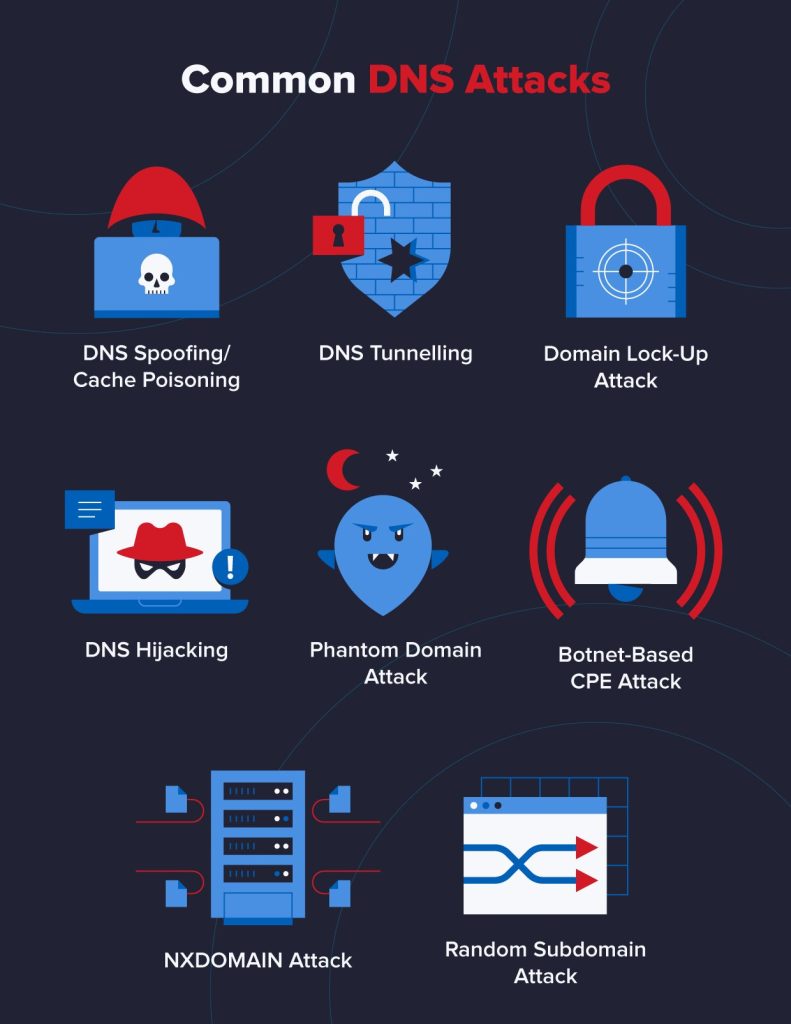The Weakest Link in Network Security: DNS
Last year alone, DNS attacks have been reported twice as they were reported previously and the annual cost associated with these costs jumped from $1.8m (£1.38m) to $5m (£3.82m), according to Efficient IP’s latest global threat report. These attacks have become more deadly and costly for business organizations as the cost of a single DNS attack escalated from $456,000 (£350,000) to $715,000 (£548,000).
Why these DNS attacks are so easy targets for cybercriminals? The simplest answer to this question is that DNS converts domain names into IP addresses and hackers find it super easy to cause intrusion. DNS is the weakest spot to hit on as it the most used resource on the internet. Attackers use smart techniques to manipulate legit information, client personal data, credentials, or email addresses and perform other malicious activities.

What is DNS?
The Domain Name System (DNS) is like an Internet’s phone directory that maps human-readable hostnames into machine-readable IP addresses. Every single Internet request requires DNS and DNS service is the pivot point of all the online businesses. DNS also controls email delivery and web browsers, it makes it easy for us to use domain names instead of IP addresses (gracechurch.com instead of 209.61.148.168). Whenever someone enters a domain name in the Internet browser, DNS looks up for the server that domain is pointed to and pertinent IP address and then responds accordingly.
Common DNS Attacks

This picture displays the most common DNS Attacks in today’s Cyber world.
DNS Security Challenges
The associated characteristics of DNS make it a vulnerable spot for cyber-attacks and render it an ongoing challenge. The first and foremost characteristic that DNS requires is fastness so it has to be designed as a stateless protocol. This attracts a lot of cybercriminals. Similarly, DNS does not need any authentication required, neither one-factor nor two-factor authentication, it simply validates the response without any verification. Attackers utilize this opportunity in their favor and design sophisticated attacks using fake questions and false responses. In addition to this, DNS does not validate whether a particular query is legitimate or fabricated so attackers use this characteristic and design such queries that make an easier way for them to launch an attack.
How Is NetworkFort Mitigating These Attacks?
The networkfort is a security service provider that utilizes various measures and techniques to ensure the security and authenticity of its service. It also does not store or distribute information relating to users’ IP addresses. To overcome the issues related to DNS, NetworkFort prevents even the resolver’s operator from linking queries to identities. It also provides encryption for email content and attachments and secures it in the form of encrypted data.
 For further information, please visit our website http://www.netwrokfort.com
For further information, please visit our website http://www.netwrokfort.com

